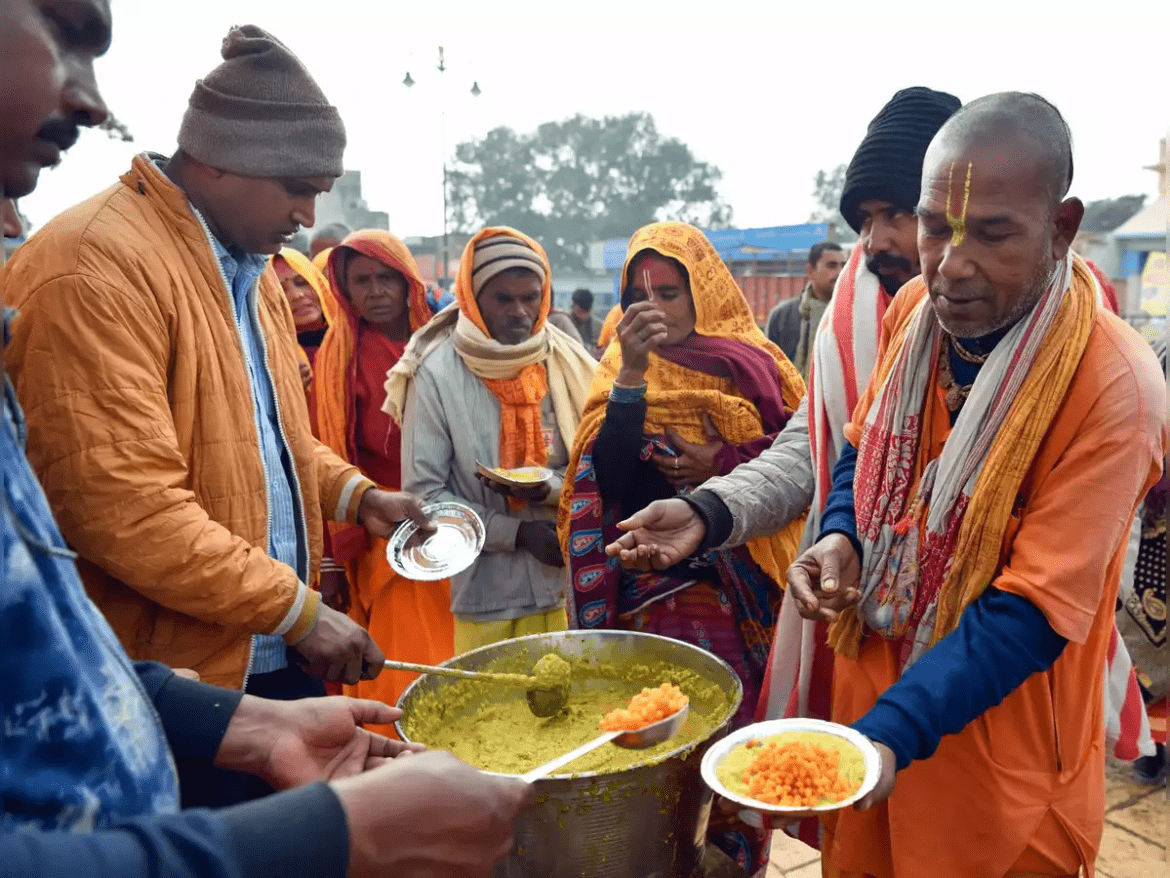AI Generated Summary
- In the sacred city of Ayodhya, where the air is thick with devotion and the cold can be bone-chilling, a group of Nihang Sikhs has once again exemplified the timeless Sikh tradition of ‘sewa bhaav’ by initiating a two-month-long ‘Langar Sewa’ at the Char Dham Mutt.
- Baba Harjit Singh emphasized the historical significance of their service, stating, “This langar is a tribute to the struggle launched by our ancestors for the construction of the Ram temple in Ayodhya.
- In Ayodhya, where the winter chill can be unforgiving, the warm meals served by the Nihang Sikhs are not just a source of physical nourishment but also a testament to the enduring spirit of brotherhood and compassion.
In the sacred city of Ayodhya, where the air is thick with devotion and the cold can be bone-chilling, a group of Nihang Sikhs has once again exemplified the timeless Sikh tradition of ‘sewa bhaav’ by initiating a two-month-long ‘Langar Sewa’ at the Char Dham Mutt. Their selfless service is aimed at providing warm meals to the pilgrims who have flocked to Ayodhya to pay homage to Ram Lalla in the newly-constructed temple.
Baba Harjit Singh Rasulpur, the eighth generation descendant of Baba Fakir Singh, has a deep-rooted commitment to highlighting the sacrifices made by Nihangs among the devotees of Lord Ram. In a statement, he expressed his intent, saying, “I am the eighth generation of Baba Fakir Singh and want to highlight the sacrifices of Nihangs among Ram devotees.”

The ‘Langar Sewa’ initiated by the Nihang Sikh group is more than just a culinary service; it is a tribute to the enduring struggle launched by their ancestors for the construction of the Ram temple in Ayodhya. Baba Harjit Singh emphasized the historical significance of their service, stating, “This langar is a tribute to the struggle launched by our ancestors for the construction of the Ram temple in Ayodhya. The service will go on for two months.”
Sikhs, known for their commitment to ‘sewa’ (selfless service) and ‘simran’ (meditation), have a rich history of contributing to humanitarian causes. The concept of ‘Langar,’ which originated with the founder of Sikhism, Guru Nanak Dev Ji, exemplifies the Sikh principle of equality and the idea that everyone, regardless of their background, should have access to a nutritious meal.
This recent initiative in Ayodhya is not an isolated incident; rather, it is part of the larger Sikh tradition of serving humanity. Sikhs worldwide are renowned for their rapid and efficient response to disasters, natural calamities, and emergencies, where they set up temporary kitchens to provide free meals to those affected. The Sikh community’s commitment to ‘sewa’ has transcended religious and geographical boundaries, earning them admiration and respect globally.
In Ayodhya, where the winter chill can be unforgiving, the warm meals served by the Nihang Sikhs are not just a source of physical nourishment but also a testament to the enduring spirit of brotherhood and compassion. The ‘sewa bhaav’ displayed by the Sikh community in Ayodhya echoes the universal message of love, unity, and service that lies at the heart of their faith.




